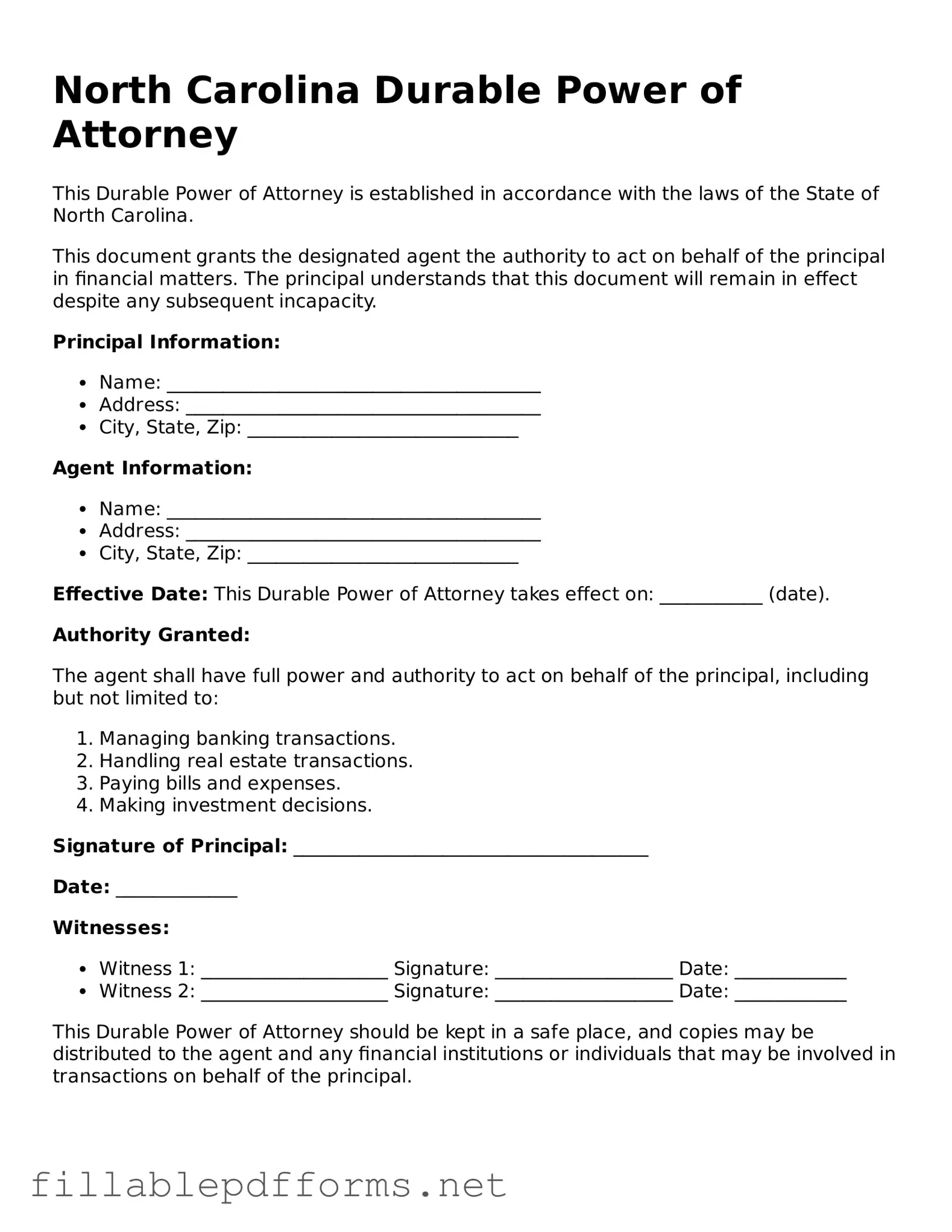Attorney-Verified Durable Power of Attorney Form for North Carolina State
A Durable Power of Attorney in North Carolina is a legal document that allows an individual, known as the principal, to designate another person to make decisions on their behalf, even if they become incapacitated. This form ensures that your financial and healthcare choices are managed by someone you trust, providing peace of mind for you and your loved ones. Understanding how to create and utilize this document is essential for effective planning and protection of your interests.
Launch Editor Here

Attorney-Verified Durable Power of Attorney Form for North Carolina State
Launch Editor Here

Launch Editor Here
or
▼ Durable Power of Attorney PDF
Almost there — finish the form
Complete Durable Power of Attorney online fast — no printing, no scanning.